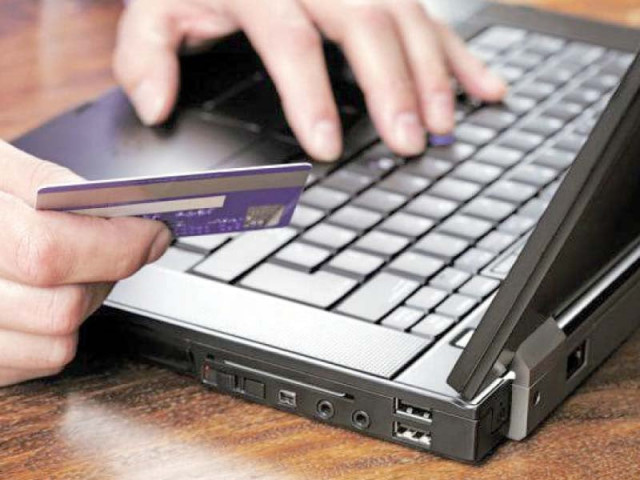Use of plastic money may become expensive
Govt planning to levy 1% tax on overseas payments via credit, debit cards

The government may impose 1% tax on all credit and debit card transactions conducted in Pakistan to buy goods abroad or during international travel, aimed at saving the fast depleting foreign exchange reserves.
It is also planning to increase the tax on international air travel by four times to Rs50,000 per Business Class ticket, according to sources in the Federal Board of Revenue (FBR).
Both the steps are aimed at saving the foreign exchange reserves by around $1 billion a year. Authorities have observed a mushroom increase in overseas payments through credit and debit cards after the State Bank of Pakistan (SBP) made the regulations stringent on the purchase of dollars from the domestic market and for the passengers carrying the greenback abroad.
In December last year, the central bank amended its regulations for the purchase of foreign currency, binding all exchange companies to ensure that no individual buys foreign exchange worth more than $10,000 per day and $100,000 per calendar year or equivalent in other currencies in the form of cash or outward remittances.
However, a person can still send educational and medical expenses abroad worth up to $70,000 per calendar year and $50,000 per invoice from banks as per existing regulations.
Further limits have also been placed on carrying foreign currency abroad from Pakistan.
Sources said that there was a proposal to revive the 1% withholding tax on the transactions conducted through credit and debit cards. The rate could be 2% for the non-filers of income tax returns.
A similar tax had been imposed in the past but was withdrawn in June last year due to the negligible collection. However, this time around the government wants to include all those online transactions through these digital modes of payment that result in outward flow of money from Pakistan.
Earlier, every banking company was collecting 1% advance tax at the time of any sum remitted outside of Pakistan, on behalf of any person who has completed a credit card transaction, a debit card transaction, or a prepaid card transaction with a person outside of Pakistan.
The official foreign exchange reserves dropped to just $9.7 billion last week that Finance Minister Miftah Ismail said would again jump to around $12 billion once a $2.3 billion loan from China was received in a few days.
Sources said that there was also a proposal to slap a total federal excise duty of Rs50,000 per Business Class international air ticket with the objective to tax the rich and also discourage international travel.
The government is already charging these passengers excise duty of Rs10,000.
The federal cabinet on Tuesday also banned foreign visits of government officials and cabinet members to save foreign exchange, except only where travel is obligatory.
In the last budget, the previous government also withdrew the 5% advance income tax on the gross amount of domestic air ticket, Rs16,000 per person on First Class international travel and Rs12,000 on Business and Economy Plus international travel.
On Monday, the SBP and the federal government categorically rejected rumours that they were planning to freeze all foreign currency accounts (FCA), Roshan Digital Accounts (RDA) and safe deposit lockers in Pakistan’s banks.
The authorities assured the general public that the accounts and lockers were completely safe, and that there was no proposal under consideration to put any restriction on them.
Finance Minister Miftah Ismail said that the looming default had been averted after the government took difficult steps in addition to engaging with the bilateral and multilateral creditors to secure more loans.
For the second consecutive day, the rupee dived against the US dollar and closed at around Rs203 in the inter-bank market on Tuesday, indicating that the markets were still nervous about the real impact of decisions taken by the government to revive the economy.
But the finance ministry said that the government was taking all necessary measures to ensure macroeconomic stability in the country.
Published in The Express Tribune, June 8th, 2022.
Like Business on Facebook, follow @TribuneBiz on Twitter to stay informed and join in the conversation.





1733130350-0/Untitled-design-(76)1733130350-0-208x130.webp)











COMMENTS
Comments are moderated and generally will be posted if they are on-topic and not abusive.
For more information, please see our Comments FAQ